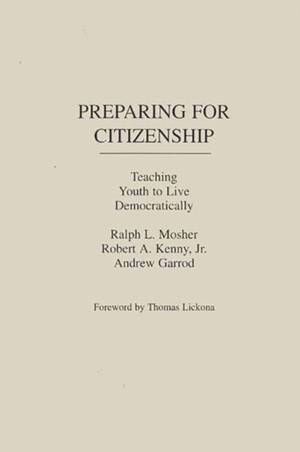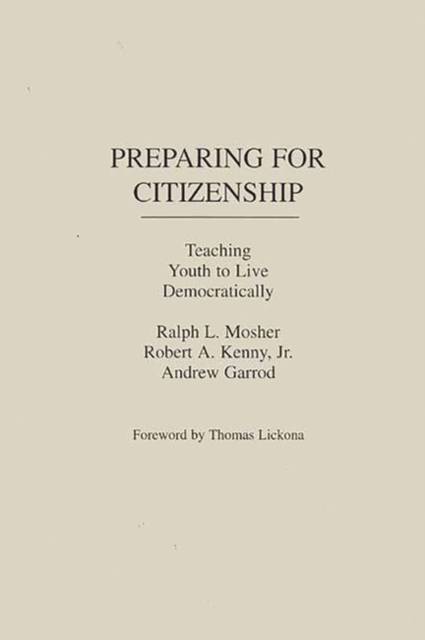
Je cadeautjes zeker op tijd in huis hebben voor de feestdagen? Kom langs in onze winkels en vind het perfecte geschenk!
- Afhalen na 1 uur in een winkel met voorraad
- Gratis thuislevering in België vanaf € 30
- Ruim aanbod met 7 miljoen producten
Je cadeautjes zeker op tijd in huis hebben voor de feestdagen? Kom langs in onze winkels en vind het perfecte geschenk!
- Afhalen na 1 uur in een winkel met voorraad
- Gratis thuislevering in België vanaf € 30
- Ruim aanbod met 7 miljoen producten
Zoeken
Preparing for Citizenship
Teaching Youth to Live Democratically
Ralph Mosher, Robert A., Jr. Kenny, Andrew Garrod
Paperback
€ 39,95
+ 79 punten
Omschrijving
It follows that all grade levels should participate in the creation of the constitution of the school and classrooms, the justice structure of the school (its disciplinary code, norms, and adjudication), the policy-making of the school, and in the understanding of the school as a social laboratory.
Specificaties
Betrokkenen
- Auteur(s):
- Uitgeverij:
Inhoud
- Aantal bladzijden:
- 216
Eigenschappen
- Productcode (EAN):
- 9780275950965
- Verschijningsdatum:
- 21/10/1994
- Uitvoering:
- Paperback

Alleen bij Standaard Boekhandel
+ 79 punten op je klantenkaart van Standaard Boekhandel
Beoordelingen
We publiceren alleen reviews die voldoen aan de voorwaarden voor reviews. Bekijk onze voorwaarden voor reviews.









